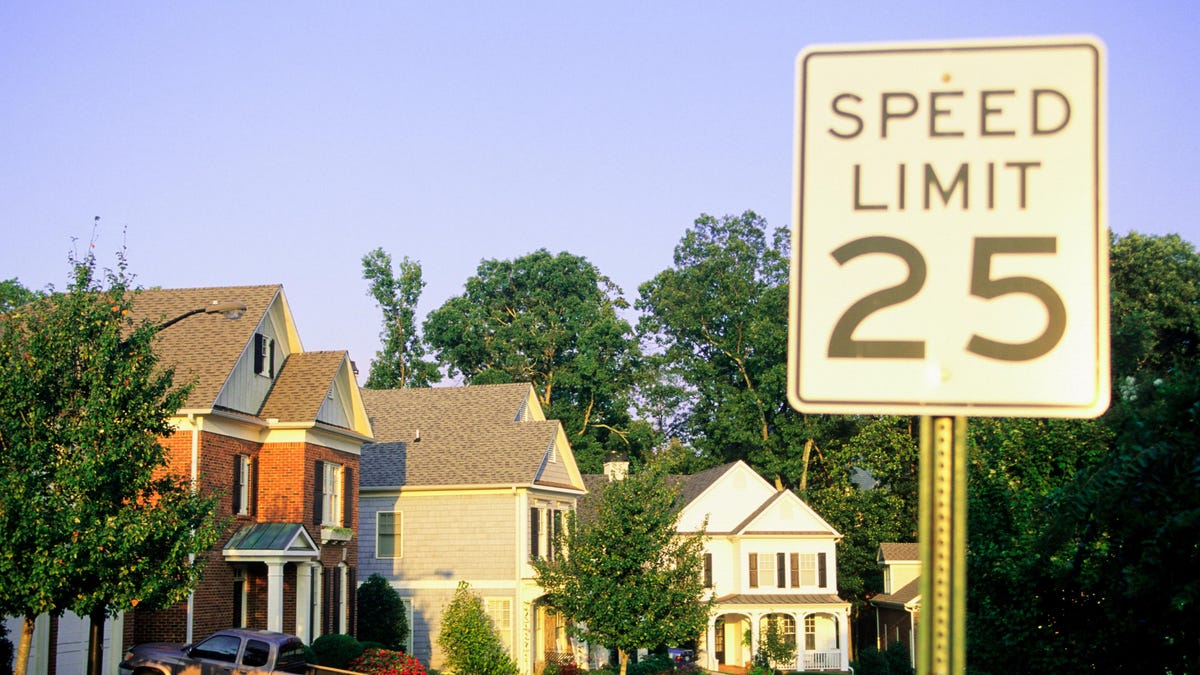What I’m reading is that every car will have to be equipped with functioning GPS that’s going to check against a database of speed limits.
—Speed limits that can change and be out of date. —GPS data that could be stored and extracted from the dealership and sold or given to the government, insurance companies, and law enforcement. —GPS data that could be sent in real time if the car has a cellular connection or hijacks the cellular connection in your phone when you connect it to the car.
This is bad. Really really bad.
…GPS data that
couldwill be stored and extracted…GPS data that
couldwill be sent in real timeFTFY!
-hijacks the cellular connection in your phone when you connect it to the car.
How would it do this without the user triggering it? I don’t own a newer car, is this a real thing some of them can do?
I know in my phone I have to turn on sharing the mobile connection via USB, it’s not something that just happens.
To be clear, I do not think this is currently happening, but with an update to Android Auto or Apple Carplay, it could happen when you connect, say, your iphone to your car via usb, or possibility even bluetooth.
Tech companies are plowing forward with making your own devices work against you, so I consider it a very real possibility.
It’s entirely unnecessary, your car is already registered to your name and address via title and registration and already reports GPS data back to home on nearly every car made after 2016, and your phone is always where you are and reporting back unless you have all your data connections turned off. You don’t need to sync them up at all. It’s already happening.
This will get people to pay for and/or disable this. Let’s just give you more distractions!
The GPS data can’t be out of date if it becomes the authoritative source of speed limit data.
Not sure if you’re kidding, but that is false.
deleted by creator
When I read the headline I briefly imagined a world where people who bought new cars were statutorily required to honk at other drivers for their driving.
I was SO torn on posting this to the Not The Onion community for that reason. I find the headline hilarious (as evidenced by me commenting “HONK” throughout this comment section)
I was picturing the same thing, but I imagined it was automated and I was dying laughing.
Never change
There are definitely areas of California where going less than 10 miles over the speed limit will put you well under the flow of traffic in every lane. If you’re not going 80 on 80, you’re gonna have a bad time.
Nevermind the long stretches in Nevada where the slowest guy pulling a trailer is doing 95.
Carpool minimum is 85 and everything else 80 minimum.
Ford delivers fleet vehicles governed to 70Mph. Colorado’s interstate limit is 75 outside of cities … we have to reprogram every one we get so our drivers don’t cause accidents.
Plenty of spots on the 80 I cruise the speed limit in the 2nd slowest lane without any troubles. Just because a few people need to fly doesn’t mean the rest of the world does.
Hopefully this change will alleviate that problem.
Maybe in a decade when the majority of cars have them.
Our GPS often shows the incorrect speed limit.
And map data for speed limits is outdated at best.
HONK
Beep beep!
Car, I’m on the highway! I know GPS drifted a bit, but I’m not on the residential road next to the highway that has a 25 mph speed limit, I’m on the highway with a speed minimum of 45 mph!
Beep beep!
Frontage roads are definitely going to be a problem. This is NOT well thought out.
Is there a minimum speed limit in the US for some roads?
What do you do in a traffic jam? Break the law by driving slower?
Mostly just freeways. I don’t think it’s heavily enforced. The idea is that cars traveling at drastically different speeds on the same road are more likely to cause an accident. It’s best to drive “the speed of traffic” because that’s what is predictable. Roads should be designed in such a way to make the target speed limit the fastest speed at which most people feel comfortable anyways, rather than just obeying a sign. So a 20mph road should be skinny and not straight. A 70mph highway should be wide and straight. Back to the point, though, in a traffic jam, all the cars are slow and therefore the speed differential is small already and therefore no reason to ticket anyone.
Someone driving at an unsafe speed? How about some distractions, that should work out great!
It not the job of citizens to enforce the law but I guess cops are too busy murdering citizens.
Wrong type of beeping, though I mistook it for that too. They mean an alert similar to the seat belt or door audible alerts. People who have some sort of device from their insurance ro monitor their driving get some types of beeps like this already (stuff like decelerating to hard).
Ah, thank you for clarification.
Haha this will make using car alerts completely meaningless
Welcome to Bangkok
It means ‘hey I’m here’ in SE Asia and it works effectively for that. Loud, annoying…but it does accomplish something.
article isn’t talking about sounding the horn.
How about tailgating?
My friend drives a big rig and every time someone cuts him off there is an annoying alarm.
Is this about speeding?
Or is this about getting every car to broadcast it’s location data?
Good thought, but that’s happening anyway unfortunately
My car beeps at me if j go the wrong way down a 1 way street. Of course it hasn’t updated the maps of the area where i live in at least 10 years so it just beeps constantly.
Are you serious?! I would set it on fire and launch it at the manufacturer’s headquarters, then plead “temporary insanity by incessant beeping” to the court.
I don’t really care about the honking so much as I do the fact that this mandates that the car track its position.
“[an] integrated vehicle system that uses, at minimum, the GPS location of the vehicle compared with a database of posted speed limits, to determine the speed limit, and utilizes a brief, one-time visual and audio signal to alert the driver each time they exceed the speed limit by more than 10 miles per hour.”
Honestly the only part of this that is unreasonable is that it isn’t immediately followed with “the database updates will be maintained and provided in an open, unencrypted format for free for the life of the vehicle, and the tracking data cannot be used for any other purpose”. GPS is a one-way, triangulation-based signal. It doesn’t inherently track or leak anything. I think we would be a lot safer if we all could agree what speed to go.
I think we would all be safer if we recognized individual competence and attention as the key ingredient in safety, and stopped trying to replace human attention with an ever-expanding set of sensors and woefully inadequate algorithms for determining whether the driver is being safe.
Like, if they have to model the driver as someone who’s not paying attention, then the whole design philosophy of the car is fucked, and we’re designing for failure.
I agree. And the whole design philosophy of the car was fucked when manufacturers were allowed to build SUVs and oversized trucks that weigh 2+ tons and don’t require any additional certification or licensure.
The statistics around accidents with large vehicles like that are less about their operation and more that they exist at all. Accidents will always happen, certification or no. The issue is someone struck by one will be more likely to sustain heavier or critical injuries, and smaller cars offer less protection for their passengers when hit by heavier vehicles.
So rather than “you can use one of these completely unnecessary vehicles if you pass a test once”, they should just be outlawing them all together as basic consumer vehicles. If they aren’t being designed for specific utilities or business purposes, you can’t make them and sell them to just anyone.
The whole design philosophy of the car is fucked and we have designed for failure.
“Individual competence” leads to over a million annual road traffic fatalities globally. Every. Year.
Don’t get me wrong, it’s bad when people die on the road. I just don’t think the path to reducing those numbers is trying to make the cars foolproof. Cars are dangerous. Perhaps we should require regular skills testing for drivers to make sure they know what they’re doing. There are definitely people who have licenses who should not have those licenses.
Skills testing would be a better investment of our resources than adding more attention replacement systems to account for a steadily-stupefying population of drivers.
The problem is that in many places there are no alternatives to driving. Taking away licenses from “those who shouldn’t have licenses” restricts their access to regular life so massively that you don’t do it unless there’s no more room to doubt the decision. The question moves from “do you meet the maximum safety standards” to “do you meet the minimum safety standards”.
The solution is to either make driving foolproof or to provide viable alternatives to those unfit (or unwilling) to drive.
Na, relying on individuals to be competent and not distracted is not the logical way to make the system safer. There’s a well established hierarchy of how to design safe systems, and relying on individual expertise is at the bottom right above asking pedestrians to wear helmets to cross the street. We need safer streets, fewer, smaller, slower cars that have automated braking features. We need enforcement of speeding and distracted driving. It’s fucking absurd how many drivers are on their phones. Making folks take a competency test does nothing for this (although I’m also for stricter licensing, but we also need alternatives to driving so people can live normal loves when we take their driving privileges away).
https://www.osha.gov/sites/default/files/Hierarchy_of_Controls_02.01.23_form_508_2.pdf
Well we’ve been trying that for 100 years and it turns out it doesn’t work because people are easily distracted and are generally terrible at driving.
People don’t speed because they are distracted. People speed because they think they are better than average drivers; every damn one of them.
Polls show nearly everyone, speeding or not believes they are berger than average drivers.
The GPS isn’t the issue, the speed limit database is. How does the car know what the limit is, and how does that database get updated when limits are changed or new roads are built? What is the mandate on the updating of that database?
hence the omission I suggested unreasonable. That database needs to be updatable by the end user, trivially. IMHO could/should be done ad-hoc by a hobbyist or as part of a standard oil change every ~6mo.
I can also see bad actors “updating” the database to 100mph everywhere. I’m sure write restrictions could be put in place, but allowing the public access to a system like this would make it ripe for abuse.
GPS itself doesn’t transfer data about the location to the outside world, but it means that the car has to constantly determine its location, and that this is now a legal mandate.
the database updates will be maintained and provided in an open, unencrypted format for free
the tracking data cannot be used for any other purpose
These are mutually exclusive. If the data is open, unencrypted and freely accessible, it will be used for other purposes, by anyone who wants to.
Also, tracking every vehicle location and storing that in a centralized database is a privacy nightmare, no matter how well it’s secured.
I think that they’re talking about two different things there in those two different sentences.
The first is the map updates, the second the log of position data on the car.
It already does, and auto manufacturers already share or sell this data.
Heck, because there’s a massive loophole in consumer privacy around the government buying data, any government agency can just go directly to a vehicle manufacturer and ask to buy the data.
There was a big flap about this regarding car insurance recently, but as pointed out by the EFF (How to Figure Out What Your Car Knows About You), industry folks have been looking at monetizing this data for a while for all sorts of purposes, including advertising, consumer data sales, and even behavior analysis to understand how to better force consumers to pay for vehicle-based subscriptions.
We own nothing, not even our privacy.
It already does,
Yes, but they weren’t legally required to do this prior to this point.
no honking at any point is involved.
Fuck that.
The car has to track your location and regularly download the local speed limits so it knows when you are speeding? Bet it’s uploading your location too. This is way invasive and not just annoying.
Bet it’s uploading your location too.
FUD. You’re literally just making ship up to be angry about.
For now we’re talking about something not yet implemented. We shall see.
There is no need for any information to be uploaded. You are getting angry at something you imagined.
Of course there is no need. Do you think there is also no desire, or that they will pass up the opportunity? You are naive or trolling. Bye.
You are a paranoid asshole. No, not even paranoid. Just an asshole looking for things to be angry about, somehow not being satisfied with the many, many real things to be angry about, and inventing windmills to tilt at instead. I feel sorry for you.
The light repeating ding of the AE86 after it screeches around every corner

I expect this law to be struck down for the same reason as the Japanese one. It’s annoying.













